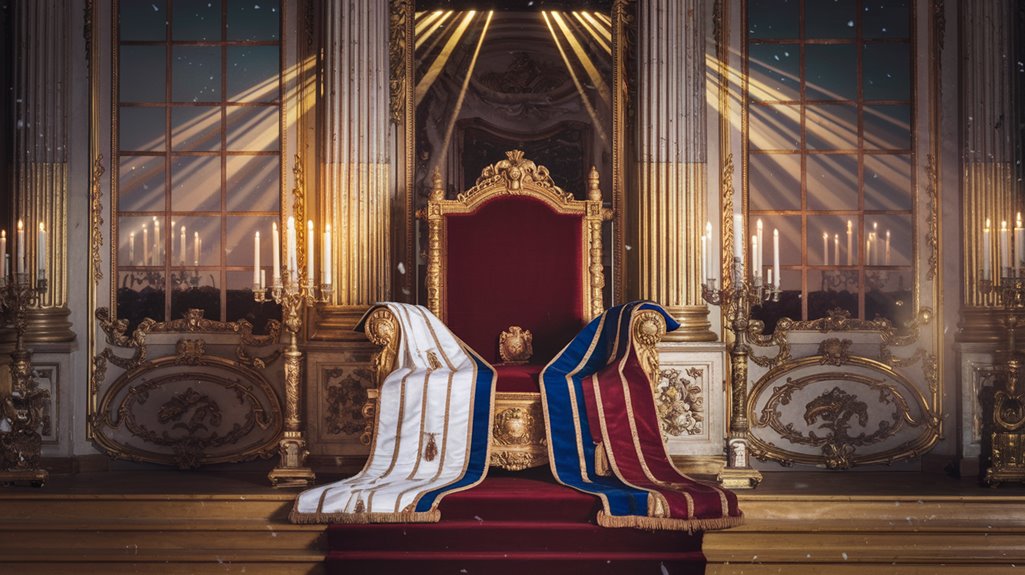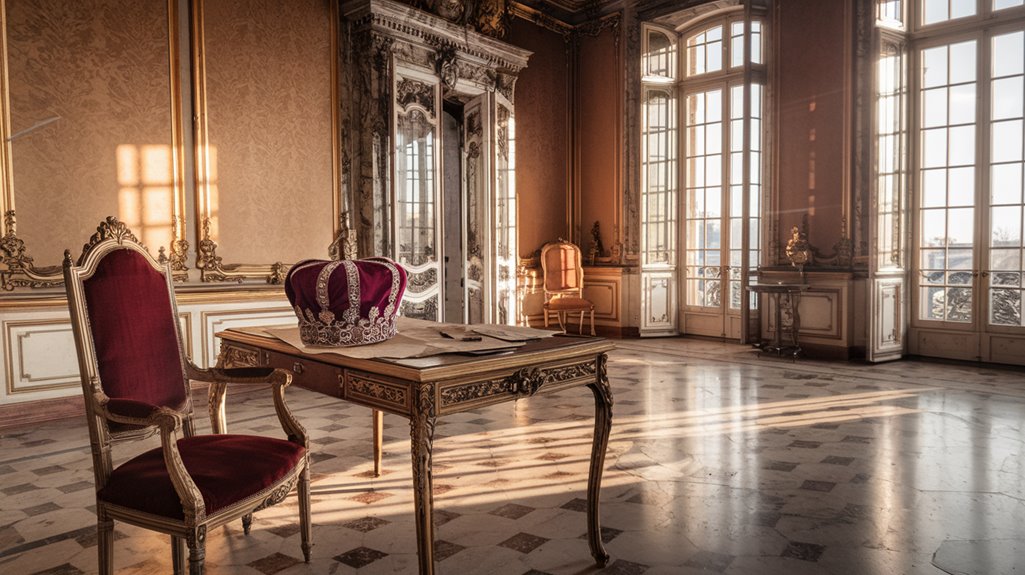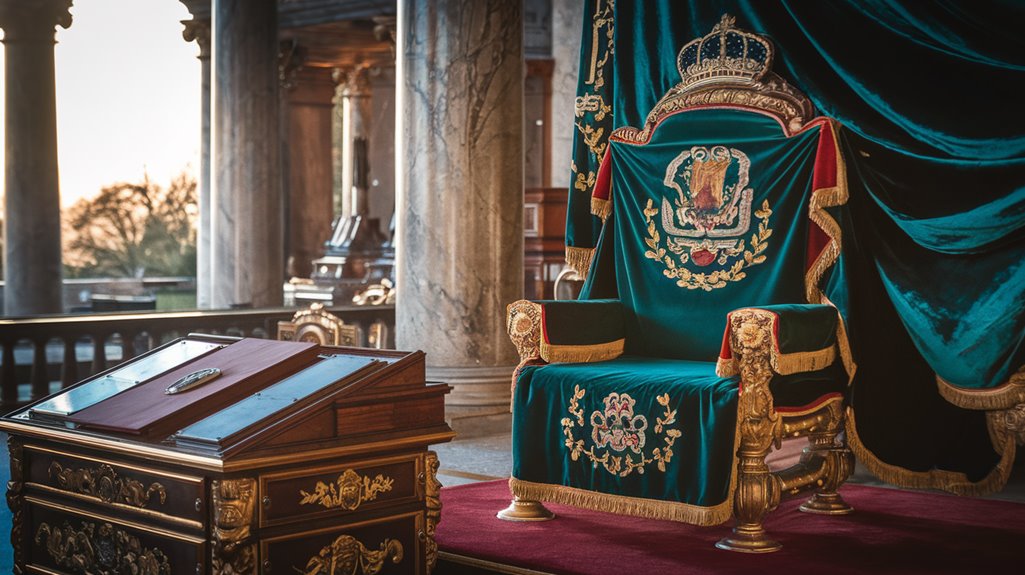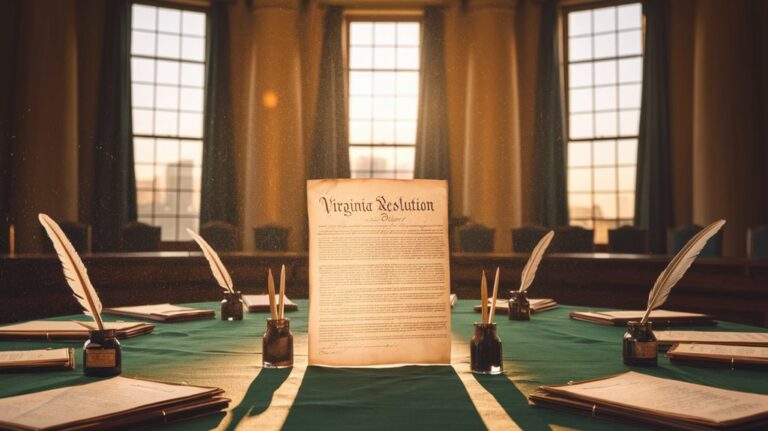The Shortest Monarchical Reign Lasted 20 Minutes
Like a fleeting shadow across a sundial, the shortest reign in monarchical history spanned just twenty minutes. You've probably wondered how a king's rule could be shorter than your average lunch break. It happened in France during the tumultuous July Revolution of 1830, when Louis XIX claimed and lost his crown before most citizens even knew they had a new king. There's more to this peculiar slice of history than just its brevity – it's a tale of chaos, power, and swift political change.
The Day France Had Three Kings

While most days in French history saw a single monarch on the throne, the tumultuous events of July 31, 1830, witnessed three different kings claim the crown within a span of 24 hours.
During the July Revolution, Charles X found himself forced to abdicate, leading to a remarkable succession crisis.
His son, who'd become Louis XIX, inherited the throne but held it for what some historians claim was just 20 minutes before also abdicating. Legitimist supporters continued to view him as the rightful king until his death.
This brief period was drastically different from typical French royal transitions, where celebrating with the traditional Galette de Rois would mark a new king's ascension.
The question of monarchial legitimacy became particularly complex during this brief period, as the rapid changes in succession created unprecedented circumstances in French history.
You'll find this extraordinary day stands as a demonstration to the fragility of royal power, ultimately contributing to significant changes in France's political landscape and the establishment of the July Monarchy.
Understanding Louis XIX's Brief Authority
Although most monarchs rule for years or decades, Louis XIX's reign as King of France lasted a mere 20 minutes, marking one of history's briefest claims to royal power.
You might wonder how such a short reign came to be: In July 1830, during the tumultuous July Revolution, his father Charles X abdicated the throne, technically making Louis XIX the king.
However, the political climate was so unstable that Louis XIX signed his own abdication in the same document as his father's. This was a stark contrast to the lengthy reigns of previous French monarchs, such as Louis XIV who ruled for 72 years and established Versailles as capital in 1682.
As the last Dauphin of France, Louis XIX's brief reign marked the end of an era for the French monarchy.
While some historians debate the royal legitimacy of his brief reign, Louis XIX shares this unusual distinction with Portugal's Luís Filipe, who also reigned for just 20 minutes.
Neither monarch received formal recognition during their fleeting moments as titular heads of state.
Historical Events Leading to the 20-Minute Reign
The events leading to Louis XIX's 20-minute reign took shape during France's turbulent July Revolution of 1830.
You'll find that Charles X, Louis XIX's father, faced mounting pressure from the public due to his increasing unpopularity and authoritarian policies.
Interestingly, this period also saw another short reign as Henry V of France would later rule for only 7 days during the same revolutionary period.
The July Revolution forced Charles X into a critical decision: royal abdication.
What makes this succession particularly intriguing is that both Charles X's abdication and Louis XIX's renunciation of power appeared on the same document.
While Louis XIX technically became king after his father stepped down, he didn't have time to establish his authority or receive an official announcement. This brief tenure stands in stark contrast to rulers like Sobhuza II of Swaziland, who reigned for over eight decades.
Before you could blink, he too had abdicated, making way for his cousin Henri V and effectively ending the Bourbon Restoration.
Other Notable Ultra-Short Royal Reigns
Beyond Louis XIX's famous 20-minute reign, several other monarchs throughout history held their thrones for remarkably brief periods.
You'll find Luís Filipe of Portugal sharing a similarly brief 20-minute reign after his father's assassination in 1908. The ultra-short reigns often resulted from political upheaval, violence, or succession disputes.
Some monarchs, like Wanyan Chenglin of Jin and the Daughter of Xiaoming Emperor, didn't even make it through their first day on the throne. In contrast, Louis XIV's reign lasted over 72 years, marking the longest reign of any European monarch.
Lady Jane Grey's nine-day reign stands as England's shortest monarchical period. The cases of royal succession crises led to even more fleeting reigns.
Emperor Modi of the Jurchen Empire ruled for just 12 hours during a Mongol siege, while Sultan Khalid bin Barghash of Zanzibar managed two days before being ousted by British forces.
The circumstances surrounding these brief reigns typically involved war, revolution, or dynastic conflicts.
Impact on French Monarchy and Politics

Following Louis XIX's momentous 20-minute reign, France experienced a seismic shift in its political landscape that would permanently alter the course of its monarchy.
The end of the Bourbon Restoration marked a significant turning point, as power transferred to Louis Philippe I's July Monarchy, establishing a more parliamentary system. Charles X's coronation of 1825 represented the last traditional French royal ceremony before these dramatic changes. This transition echoed the earlier abolition of the monarchy in 1792, when France first became a republic.
You'll find three major changes that reshaped France during this period:
 academic blog discussions, this historical event sparked important debates about power dynamics and institutional legitimacy.
academic blog discussions, this historical event sparked important debates about power dynamics and institutional legitimacy.
When you compare his reign to longer-ruling monarchs like Sobhuza II, who reigned for over 82 years, you'll understand how even the briefest rules can serve as pivotal moments in shaping a nation's political evolution.










